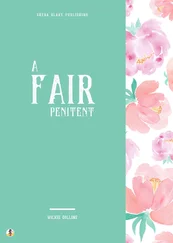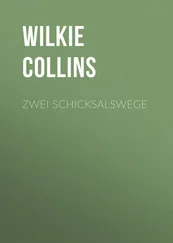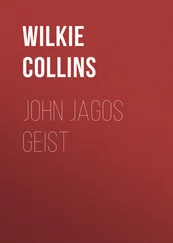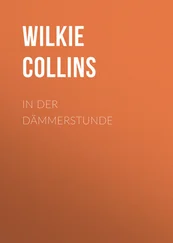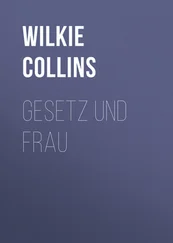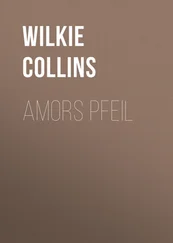Wilkie Collins - Little Novels
Здесь есть возможность читать онлайн «Wilkie Collins - Little Novels» весь текст электронной книги совершенно бесплатно (целиком полную версию без сокращений). В некоторых случаях можно слушать аудио, скачать через торрент в формате fb2 и присутствует краткое содержание. Год выпуска: 1999, Жанр: Классическая проза, на английском языке. Описание произведения, (предисловие) а так же отзывы посетителей доступны на портале библиотеки ЛибКат.
- Название:Little Novels
- Автор:
- Жанр:
- Год:1999
- ISBN:нет данных
- Рейтинг книги:5 / 5. Голосов: 1
-
Избранное:Добавить в избранное
- Отзывы:
-
Ваша оценка:
- 100
- 1
- 2
- 3
- 4
- 5
Little Novels: краткое содержание, описание и аннотация
Предлагаем к чтению аннотацию, описание, краткое содержание или предисловие (зависит от того, что написал сам автор книги «Little Novels»). Если вы не нашли необходимую информацию о книге — напишите в комментариях, мы постараемся отыскать её.
Little Novels — читать онлайн бесплатно полную книгу (весь текст) целиком
Ниже представлен текст книги, разбитый по страницам. Система сохранения места последней прочитанной страницы, позволяет с удобством читать онлайн бесплатно книгу «Little Novels», без необходимости каждый раз заново искать на чём Вы остановились. Поставьте закладку, и сможете в любой момент перейти на страницу, на которой закончили чтение.
Интервал:
Закладка:
“What is the lady’s name?”
“Mrs. Evelin.”
“Why does she leave her employment?”
“To save her eyes, poor soul. When the senior partner, Mr. Farleigh, met with her, she was reduced by family misfortunes to earn her own living. The publishers would have been only too glad to keep her in their office, but for the oculist’s report. He declared that she would run the risk of blindness, if she fatigued her weak eyes much longer. There is the only objection to this otherwise invaluable person—she will not be able to read to you.”
“Can she sing and play?”
“Exquisitely. Mr. Farleigh answers for her music.”
“And her character?”
“Mr. Halford answers for her character.”
“And her manners?”
“A perfect lady. I have seen her and spoken to her; I answer for her manners, and I guarantee her personal appearance. Charming—charming!”
For a moment Lady Howel hesitated. After a little reflection, she decided that it was her duty to trust her excellent husband. “I will receive the charming widow,” she said, “to-morrow at twelve o’clock; and, if she produces the right impression, I promise to overlook the weakness of her eyes.”
IV.
BEAUCOURT had prolonged the period appointed for the trial trip of his yacht by a whole week. His apology when he returned delighted the kind-hearted old lady who had made him a present of the vessel.
“There isn’t such another yacht in the whole world,” he declared. “I really hadn’t the heart to leave that beautiful vessel after only three days experience of her.” He burst out with a torrent of technical praises of the yacht, to which his wife listened as attentively as if she really understood what he was talking about. When his breath and his eloquence were exhausted alike, she said, “Now, my dear, it’s my turn. I can match your perfect vessel with my perfect lady.”
“What! you have found a companion?”
“Yes.”
“Did Dick find her for you?”
“He did indeed. You shall see for yourself how grateful I ought to be to your friend.”
She opened a door which led into the next room. “Mary, my dear, come and be introduced to my husband.”
Beaucourt started when he heard the name, and instantly recovered himself. He had forgotten how many Marys there are in the world.
Lady Howel returned, leading her favorite by the hand, and gayly introduced her the moment they entered the room.
“Mrs. Evelin; Lord—”
She looked at her husband. The utterance of his name was instantly suspended on her lips. Mrs. Evelin’s hand, turning cold at the same moment in her hand, warned her to look round. The face of the woman more than reflected the inconcealable agitation in the face of the man.
The wife’s first words, when she recovered herself, were addressed to them both.
“Which of you can I trust,” she asked, “to tell me the truth?”
“You can trust both of us,” her husband answered.
The firmness of his tone irritated her. “I will judge of that for myself,” she said. “Go back to the next room,” she added, turning to Mrs. Evelin; “I will hear you separately.”
The companion, whose duty it was to obey—whose modesty and gentleness had won her mistress’s heart—refused to retire.
“No,” she said; “I have been deceived too. I have my right to hear what Lord Howel has to say for himself.”
Beaucourt attempted to support the claim that she had advanced. His wife sternly signed to him to be silent. “What do you mean?” she said, addressing the question to Mrs. Evelin.
“I mean this. The person whom you speak of as a nobleman was presented to me as ‘Mr. Vincent, an artist.’ But for that deception I should never have set foot in your ladyship’s house.”
“Is this true, my lord?” Lady Howel asked, with a contemptuous emphasis on the title of nobility.
“Quite true,” her husband answered. “I thought it possible that my rank might prove an obstacle in the way of my hopes. The blame rests on me, and on me alone. I ask Mrs. Evelin to pardon me for an act of deception which I deeply regret.”
Lady Howel was a just woman. Under other circumstances she might have shown herself to be a generous woman. That brighter side of her character was incapable of revealing itself in the presence of Mrs. Evelin, young and beautiful, and in possession of her husband’s heart. She could say, “I beg your pardon, madam; I have not treated you justly.” But no self-control was strong enough to restrain the next bitter words from passing her lips. “At my age,” she said, “Lord Howel will soon be free; you will not have long to wait for him.”
The young widow looked at her sadly—answered her sadly.
“Oh, my lady, your better nature will surely regret having said that!”
For a moment her eyes rested on Beaucourt, dim with rising tears. She left the room—and left the house.
There was silence between the husband and wife. Beaucourt was the first to speak again.
“After what you have just heard, do you persist in your jealousy of that lady, and your jealousy of me?” he asked.
“I have behaved cruelly to her and to you. I am ashamed of myself,” was all she said in reply. That expression of sorrow, so simple and so true, did not appeal in vain to the gentler side of Beaucourt’s nature. He kissed his wife’s hand; he tried to console her.
“You may forgive me,” she answered. “I cannot forgive myself. That poor lady’s last words have made my heart ache. What I said to her in anger I ought to have said generously. Why should she not wait for you? After your life with me—a life of kindness, a life of self-sacrifice—you deserve your reward. Promise me that you will marry the woman you love—after my death has released you.”
“You distress me, and needlessly distress me,” he said. “What you are thinking of, my dear, can never happen; no, not even if—” He left the rest unsaid.
“Not even if you were free?” she asked.
“Not even then.”
She looked toward the next room. “Go in, Howel, and bring Mrs. Evelin back; I have something to say to her.”
The discovery that she had left the house caused no fear that she had taken to flight with the purpose of concealing herself. There was a prospect before the poor lonely woman which might be trusted to preserve her from despair, to say the least of it.
During her brief residence in Beaucourt’s house she had shown to Lady Howel a letter received from a relation, who had emigrated to New Zealand with her husband and her infant children some years since. They had steadily prospered; they were living in comfort, and they wanted for nothing but a trustworthy governess to teach their children. The mother had accordingly written, asking if her relative in England could recommend a competent person, and offering a liberal salary. In showing the letter to Lady Howel, Mrs. Evelin had said: “If I had not been so happy as to attract your notice, I might have offered to be the governess myself.”
Assuming that it had now occurred to her to act on this idea, Lady Howel felt assured that she would apply for advice either to the publishers who had recommended her, or to Lord Howel’s old friend.
Beaucourt at once offered to make th e inquiries which might satisfy his wife that she had not been mistaken. Readily accepting his proposal, she asked at the same time for a few minutes of delay.
“I want to say to you,” she explained, “what I had in my mind to say to Mrs. Evelin. Do you object to tell me why she refused to marry you? I couldn’t have done it in her place.”
“You would have done it, my dear, as I think, if her misfortune had been your misfortune.” With those prefatory words he told the miserable story of Mrs. Evelin’s marriage.
Читать дальшеИнтервал:
Закладка:
Похожие книги на «Little Novels»
Представляем Вашему вниманию похожие книги на «Little Novels» списком для выбора. Мы отобрали схожую по названию и смыслу литературу в надежде предоставить читателям больше вариантов отыскать новые, интересные, ещё непрочитанные произведения.
Обсуждение, отзывы о книге «Little Novels» и просто собственные мнения читателей. Оставьте ваши комментарии, напишите, что Вы думаете о произведении, его смысле или главных героях. Укажите что конкретно понравилось, а что нет, и почему Вы так считаете.



